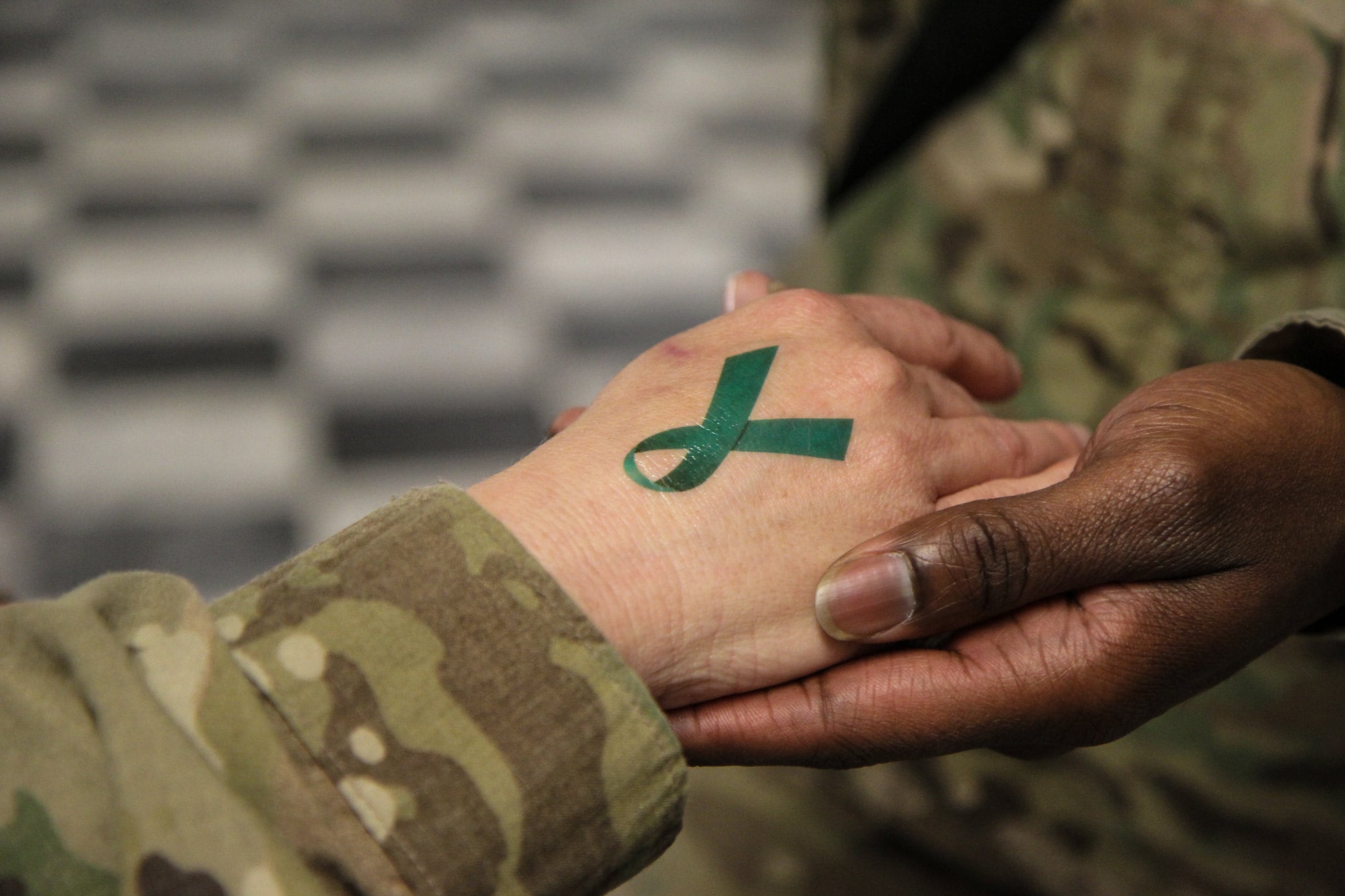A group of criminal justice experts who reviewed nearly 2,000 military rape cases found that a good number had been sent to court-martial without enough evidence to convict, and that those cases undermine the military justice system’s ability to properly prosecute sexual assaults.
They found that of all of the “penetrative sexual assault” cases sent to trial, 30 percent of them — or 73 total cases — did not have enough evidence for a conviction, according to the October report, dooming them from the start.
“Predictably, 71 of those cases resulted in acquittals of the accused on those offenses at trial. In one of the two cases that resulted in a conviction, the conviction was later overturned on appeal because the evidence was factually insufficient,” the report said.
The study focused on 1,904 rape cases closed during fiscal year 2017, reviewed by dozens of veteran judge advocates and civilian criminal justice experts, as part of the Defense Advisory Committee on Investigation, Prosecution, and Defense of Sexual Assault in the Armed Forces.
A subcommittee formed to review the cases made two major findings: That the vast majority of command decisions to take no action were justified; and that too many cases are referred to court-martial without enough evidence to secure a conviction.
The report also lays out a laundry list of common factors in cases that resulted in charges or a conviction, among them that white victims and officers are more likely to see their alleged attackers charged with a crime, and that cases were more likely to result in a conviction if the victim was a non-military spouse civilian and the alleged perpetrator wasn’t drinking.
In a somewhat contradictory finding, the report states that victims were more likely to see their cases charged if they did hire counsel, but more likely to secure a conviction if they didn’t.
Of the cases reviewed, about 5 percent ended in a conviction, which the report’s authors largely attributed to the number of cases sent to trial without enough evidence.
Chain of command
The issue of command disposition has been a sticking point for some Democratic lawmakers. In recent years they have argued that the decision to prosecute a sexual assault case is too complex, and potentially a conflict of interest, for commanders, and so they should be handled by professional special victims attorneys outside the chain of command.
"I am tired of the statement I get over and over from the chain of command: ‘We got this, Ma’am. We got this,’ " Sen. Kirsten Gillibrand, D-N.Y., told Army Chief of Staff Gen. James McConville during his 2019 confirmation hearing. “You don’t have it. You’re failing us. The trajectories of every measurable are going in the wrong direction.”
Gillibrand was reacting to a Pentagon report released that day, which showed that while the numbers of sexual assault reports had been going up ― which military officials regularly contribute to an increased understanding and comfort with the reporting process. However, prosecutions and convictions were not also increasing.
Gillibrand has introduced legislation in the past that would take sexual assault cases out of the chain of command, but has not gotten much traction.
Of 1,904 total investigations closed between October 2016 through September 2017, 1,336 ― 70 percent ― never saw charges.
“For the first time in a study of decision making in military sexual assault investigations, reviewers assessed whether military commanders' initial disposition decisions were reasonable — that is, within a permissible zone of discretion — with particular focus on those commanders' decisions either to prefer penetrative sexual offense charges against a Service member or to take no action against the Service member on that offense," according to the report.
The study, which began in 2017, coincided with a push from the Pentagon’s highest officer to lean more on UCMJ, rather than lower-level administrative punishments that require much less time and effort.
RELATED

“Leaders must be willing to choose the harder right over the easier wrong,” then-Defense Secretary James Mattis wrote in a 2018 memo. “Administrative actions should not be the default method to address illicit conduct simply because it is less burdensome than the military justice system.”
The committee did not find a systemic problem with commanders declining to take action on rape investigations, writing that in about 95 percent of the cases they reviewed, commanding officers were justified in choosing not to press charges.
‘Sufficient evidence’
What the committee did find, which the report emphasizes several times, is that too many cases that do see charges are ending up at trial, without enough evidence to convict.
The report does not specifically list what defines sufficient evidence, but states that the subcommittee relied on the expertise and experience of the members.
Their point touches on a foundational gray area in prosecuting sexual assaults, both in and out of the military: the dreaded “he said, she said” factor.
Last year, an Army appeals court overturned a West Point cadet’s rape conviction, finding that given the circumstances of the alleged assault, it was unlikely that the sexual contact between the two cadets wasn’t consensual.
Keeping in mind that many military sexual assaults happen among friends or co-workers, can involve heavy drinking and often are not reported immediately ― allowing for evidence to be washed away ― it can be a very high bar to consider a case 100-percent winnable from the start.
That murkiness doomed another Army rape case earlier this year, when a military panel acquitted a former special victims prosecutor after his defense pointed out not only inconsistencies in the alleged victim’s statements to investigators, but that Army Criminal Investigation Command itself had failed to properly document a smoking-gun phone call on which much of the case depended.
A court-martial found Capt. Scott Hockenberry not guilty on three counts each of rape and battery, stemming from an intimate relationship with another Army judge advocate.
"Capt. Hockenberry faced incredible adversity due to inexcusable failures by Army [Criminal Investigation Command] to properly document evidence in his case,” Brian Pristera, his civilian attorney and an Army JAG reservist, told Military Times in June. “The real story here is about how the Army’s preeminent law enforcement unit incompetently fumbled a high profile case, causing the Army to waste immense resources and time over the four years it has taken to arrive at this verdict.”
The Pentagon report called out the Uniform Code of Military Justice’s lack of a requirement for conviction-sealing evidence to send a case to trial, compared to that required for federal criminal cases.
In the civilian justice system, according to the Rape, Abuse & Incest National Network, the statistics show that 2 percent of rape reports end in a conviction.
“The Committee recognizes that staff judge advocates and convening authorities are doing what the military justice system allows; however, the Committee criticizes the military justice system itself for allowing the referral of charges that are not supported by sufficient admissible evidence to obtain and sustain a conviction,” according to the report.
But they may be dooming the proceedings from the start, they added, and risking both the reputation and livelihood of the accused and the alleged victim, as well as that of the entire military justice system.
“Accordingly, the Committee recommends that Congress amend Article 34, UCMJ, to require the staff judge advocate to advise the convening authority in writing that there is sufficient admissible evidence to obtain and sustain a conviction on the charged offenses before a convening authority may refer a charge and specification to trial by general court-martial,” the report says.
However, the crunched numbers also show that having enough evidence by no means assures a conviction.
Though 44 percent of the cases the committee deemed flimsy were dismissed after referral for court-martial, the committee members found that 90 percent of those that made it to trial had enough evidence to justify that recommendation.
RELATED

However, in FY17, only 43 percent of those courts-martial ended in a conviction.
“The decision to refer to trial by general court-martial an adult penetrative sexual offense charge that lacks sufficient admissible evidence to obtain and sustain a conviction directly contributes to the 61.3% acquittal rate for these offenses,” according to the report.
Here are some common factors in cases that result in charges:
- Report made within seven days of incident.
- Victim is an officer.
- Victim is white.
- Victim hired an attorney.
- DNA evidence was tested, which occurred in only 21 percent of the reviewed cases.
And here are some common factors in cases that ended in a conviction:
- The victim had no "motive to fabricate” the assault, a highly subjective conclusion.
- The alleged perpetrator confessed.
- The alleged perpetrator was not drinking at the time of the alleged assault.
- The victim did not hire an attorney.
Meghann Myers is the Pentagon bureau chief at Military Times. She covers operations, policy, personnel, leadership and other issues affecting service members.





